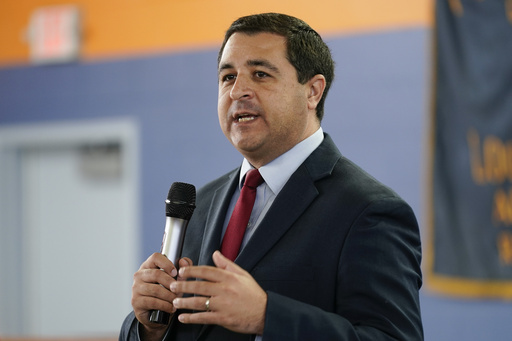
On Monday, the Wisconsin Supreme Court is set to hear discussions regarding the enforceability of a law established prior to the Civil War, which prohibits abortion. This law was enacted in 1849, and abortion rights advocates are optimistic about their chances, particularly since the court currently has a liberal majority. One of the justices, during her campaign, openly expressed support for abortion rights, suggesting that the arguments presented may be more ceremonial as a ruling is anticipated in the coming weeks.
The initial legislation against abortion was introduced by Wisconsin lawmakers in 1849, stating that anyone who caused the death of a fetus without attempting to save the mother’s life would be charged with manslaughter. A decade later, additional laws were passed that made it illegal for women to seek their own miscarriages. By the 1950s, the law was revised to classify the killing of an unborn child, as well as any act resulting in the mother’s death intended to terminate her pregnancy, as a felony. However, with specific provisions, doctors could perform abortions if it was necessary to save the mother’s life.
The landmark 1973 Roe v. Wade ruling by the U.S. Supreme Court effectively negated the Wisconsin ban on abortion, yet the prohibition was never officially repealed. Following the Supreme Court’s decision to overturn Roe two years ago, conservative legislators argued that the 1849 law became enforceable once again.
In 2022, Democratic Attorney General Josh Kaul initiated a lawsuit to challenge the law, asserting that a more recent 1985 statute that allows abortions prior to the fetus’s ability to survive independently nullifies the old ban. This statute acknowledges that some infants may survive with medical intervention after reaching 21 weeks of gestation.
Sheboygan County District Attorney Joel Urmanski, aligning with Republican viewpoints, contends that the 1849 law should still be upheld, arguing that it has never been repealed and can coexist alongside the 1985 law, which does not legalize abortion outright. He suggests that other contemporary abortion regulations also do not legitimize the act.
In a significant ruling from last year, Dane County Circuit Judge Diane Schlipper determined that while the historical ban outlaws feticide—defined as the termination of a fetus without consent—it does not prohibit consensual abortions. This ruling enabled Planned Parenthood to resume abortion services in Wisconsin after ceasing operations post-Roe’s reversal.
Urmanski has urged the state Supreme Court to overturn Schlipper’s decision directly, bypassing lower appellate courts. The court agreed to take on this case in July. Furthermore, Planned Parenthood of Wisconsin has initiated a distinct lawsuit asking the Supreme Court to directly address the existence of a constitutional right to abortion in the state and the court has also accepted this case.
Given the current liberal dominance within the court, it seems unlikely that the justices will side with the enforcement of the ban. Liberal Justice Janet Protasiewicz’s candid endorsement of abortion rights during her campaign marks a significant shift for judicial candidates, who typically remain non-partisan in their declarations to avoid perceived bias. Meanwhile, the court’s conservative justices have accused their liberal counterparts of politicizing the issue of abortion.
